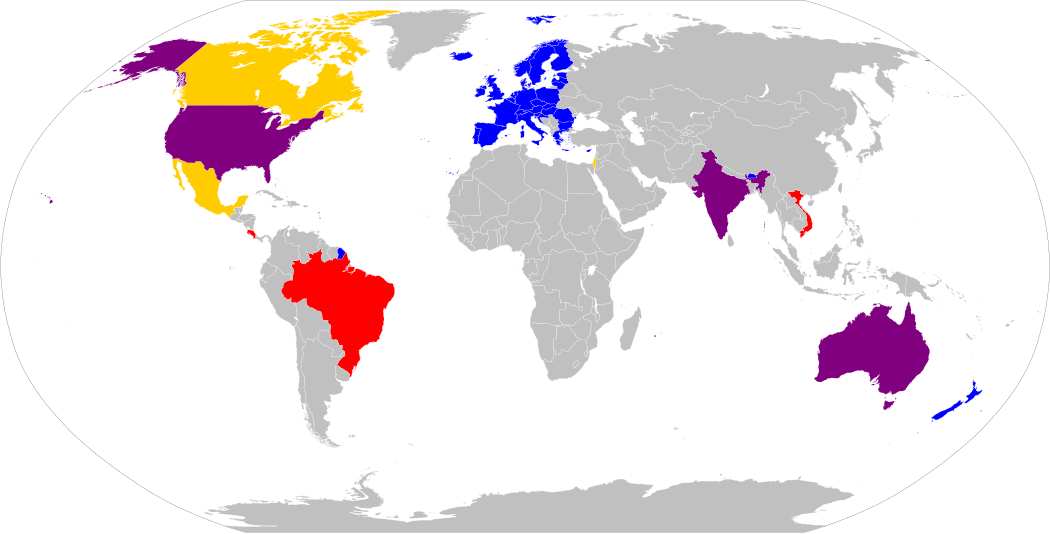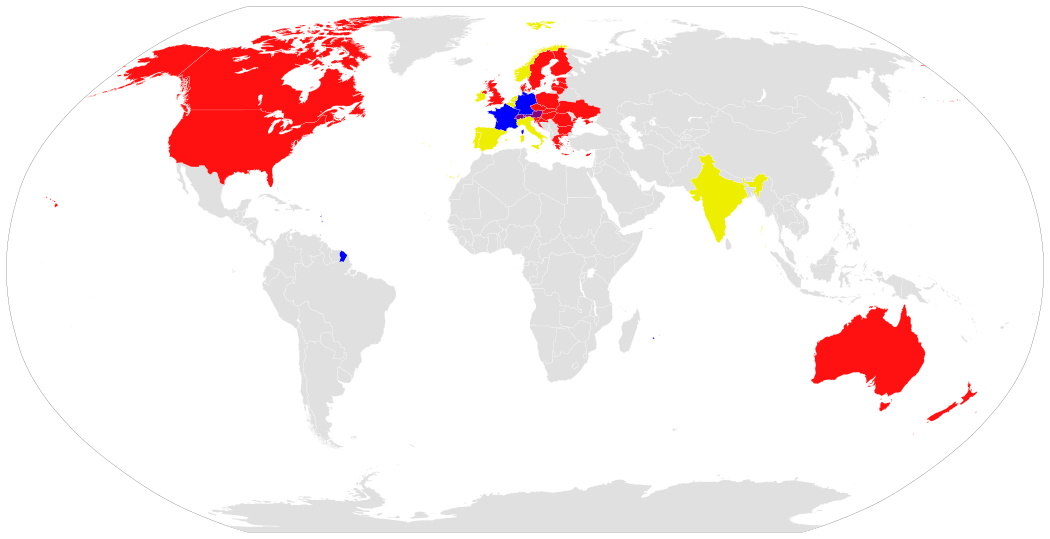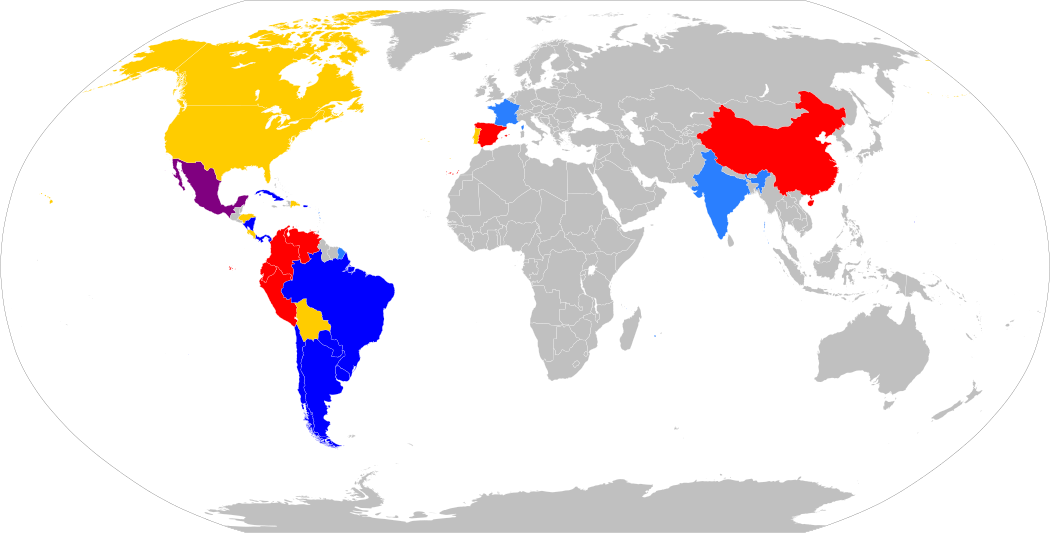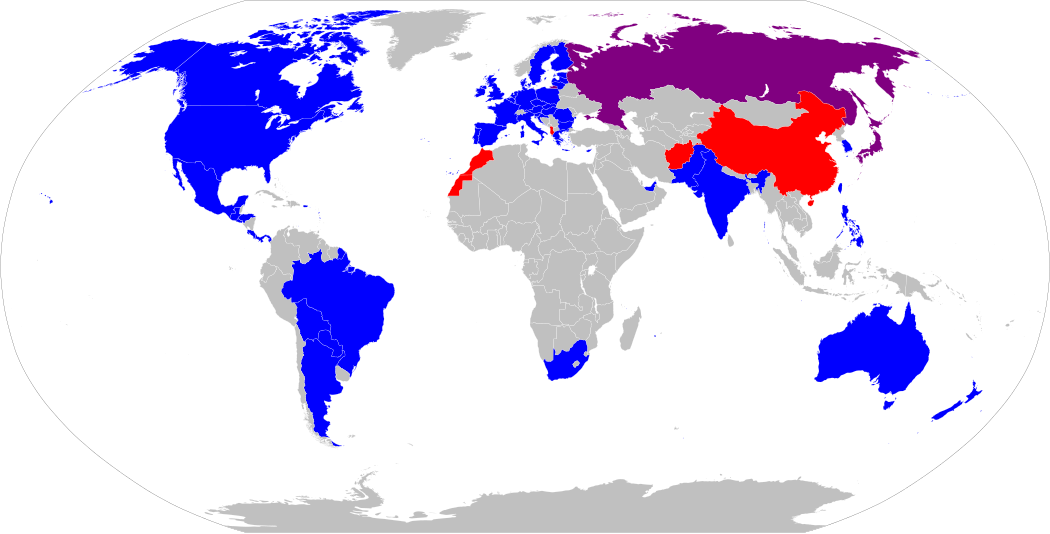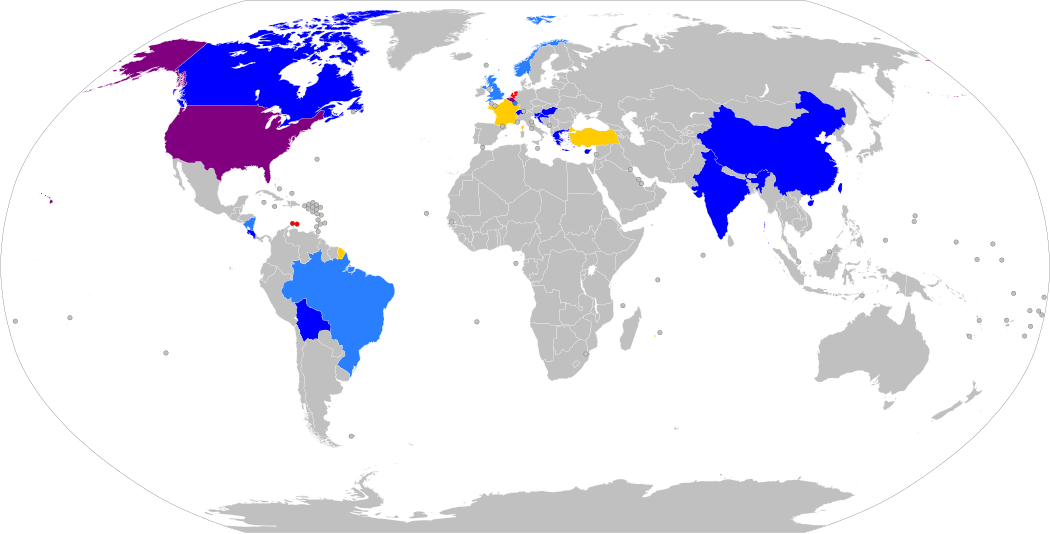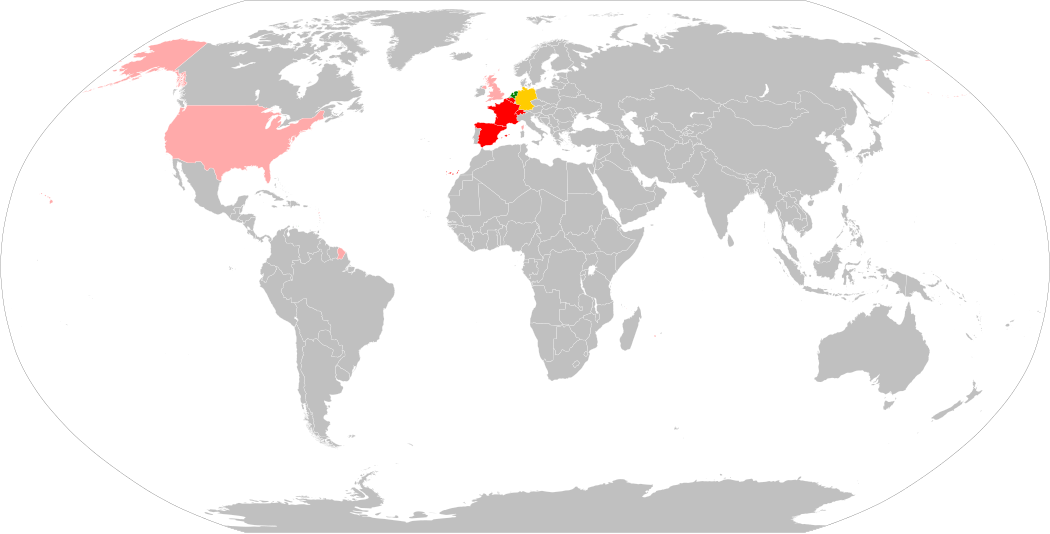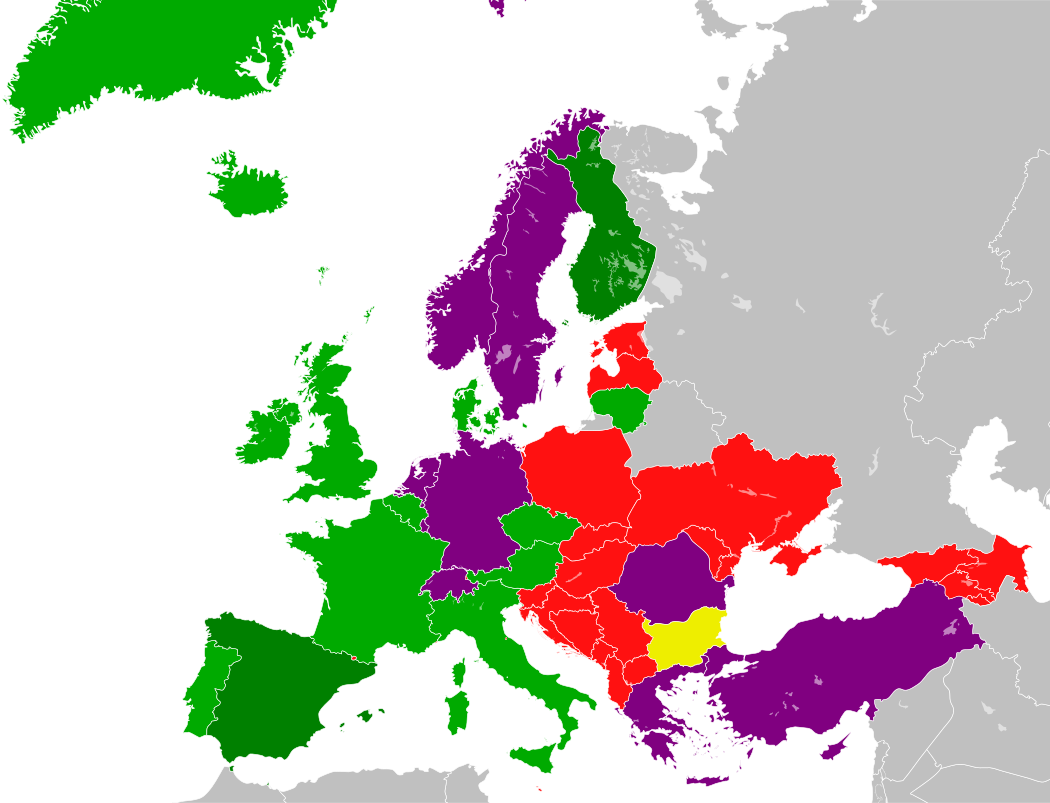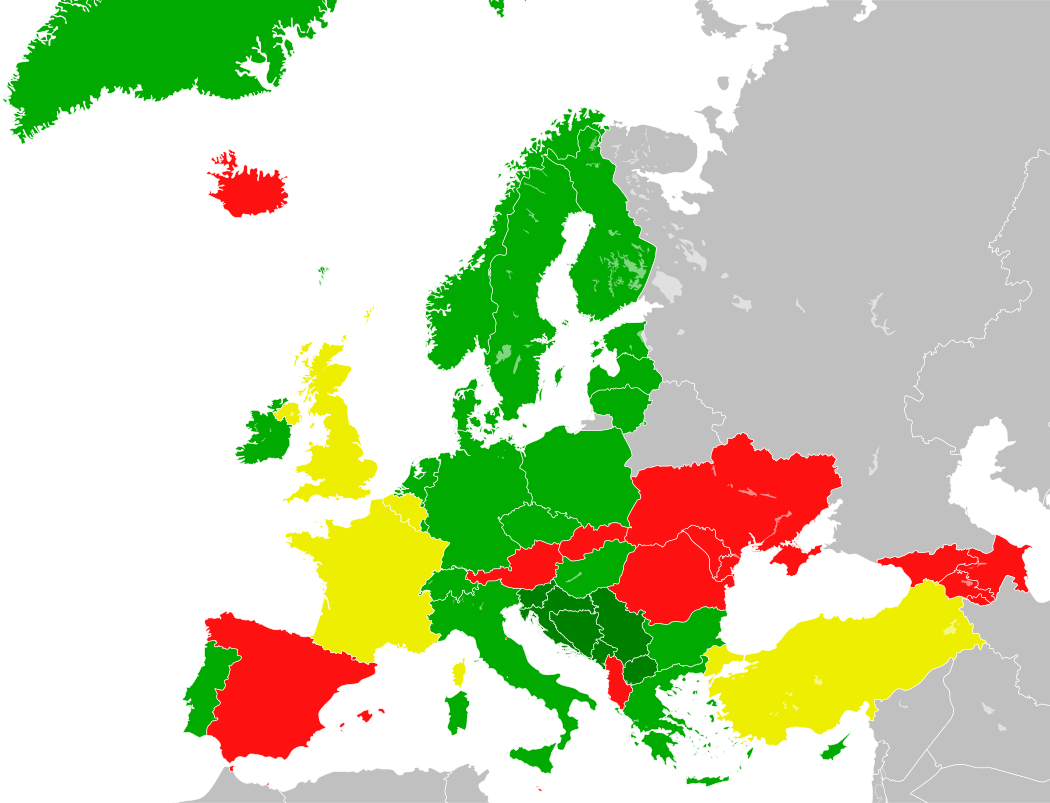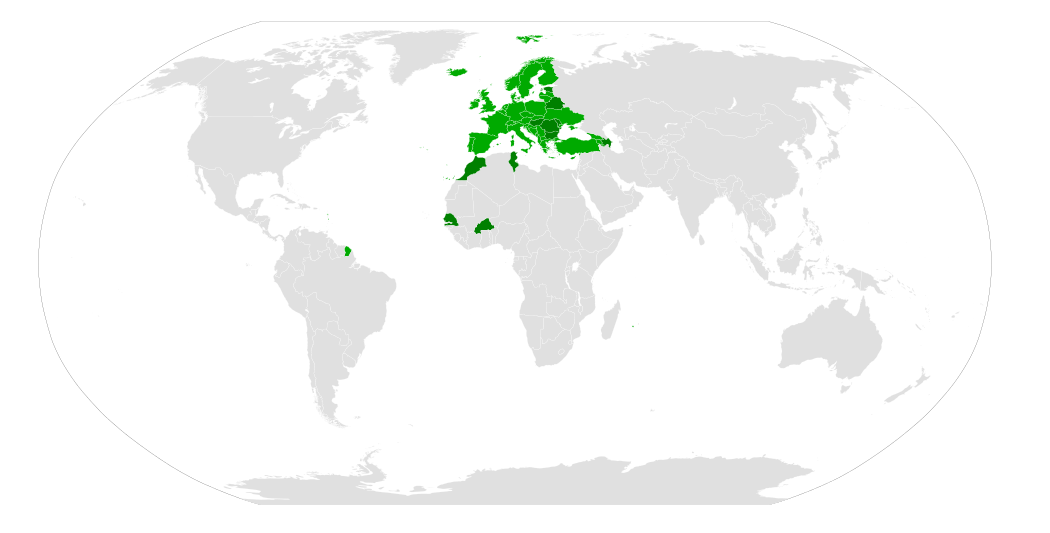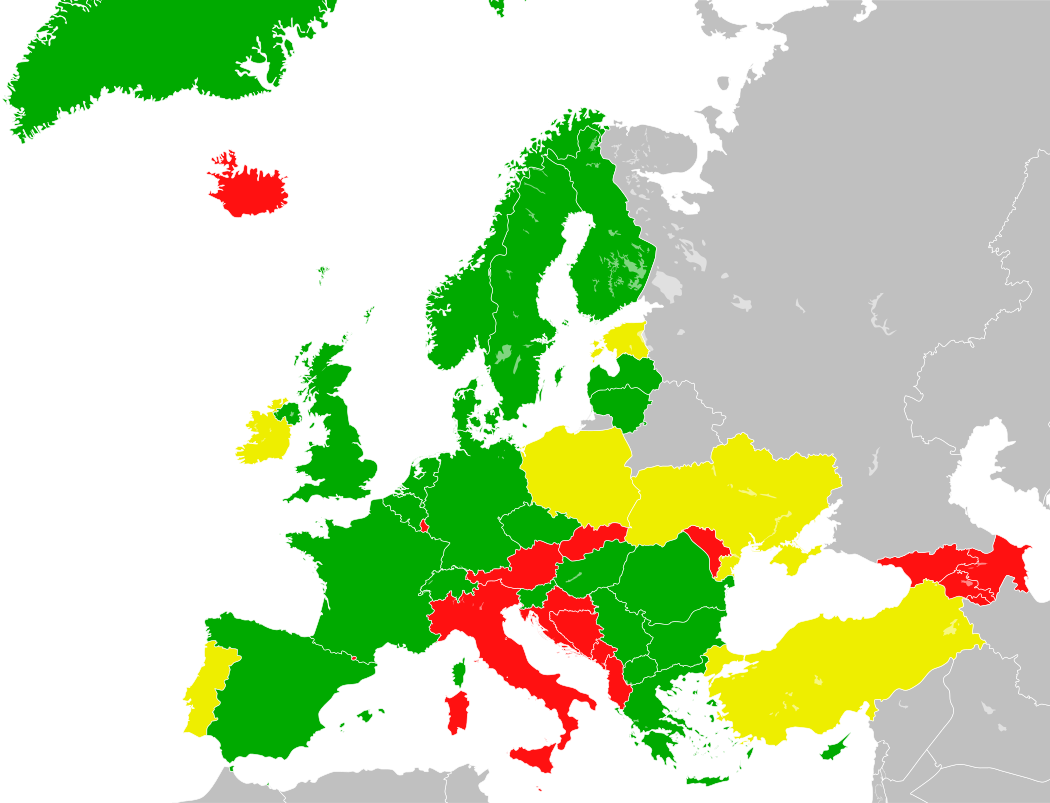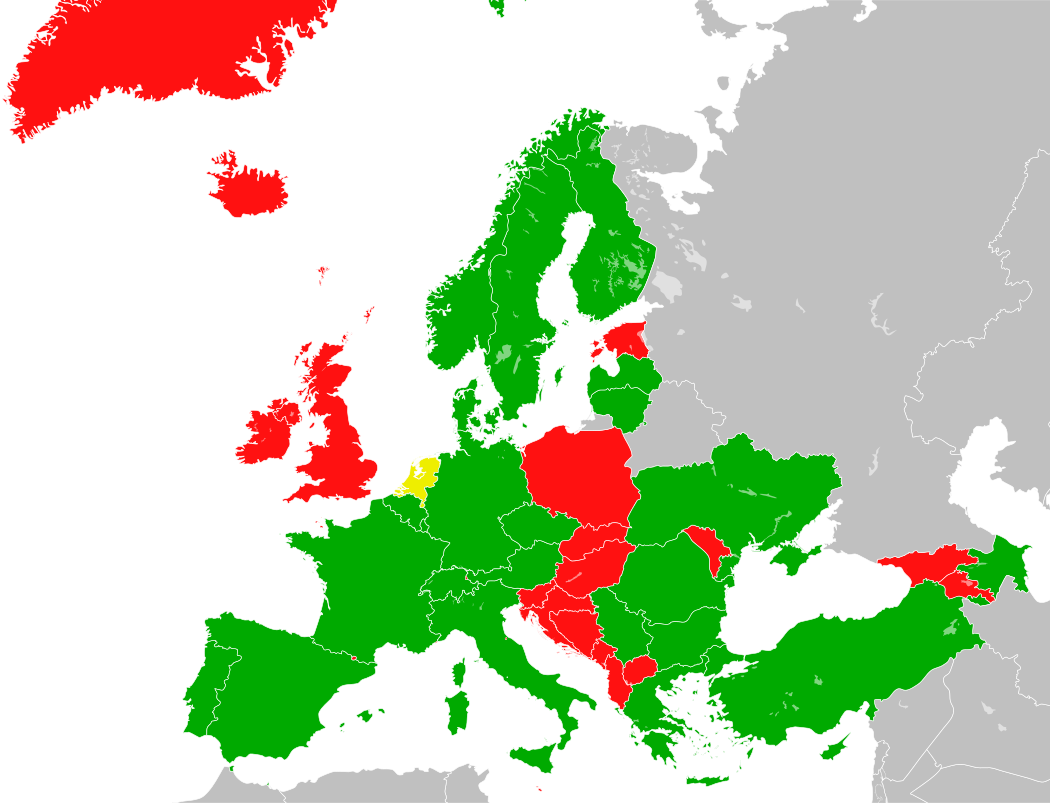Top Qs
Timeline
Chat
Perspective
Animal rights by country or territory
From Wikipedia, the free encyclopedia
Remove ads
Animal rights vary greatly among countries and territories. Such laws range from the legal recognition of non-human animal sentience to the absolute lack of any anti-cruelty laws, with no regard for animal welfare.
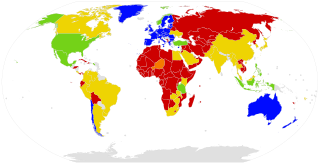
National recognition of animal sentience Partial recognition of animal sentience National recognition of animal suffering Partial recognition of animal suffering No recognition of animal sentience or suffering Unknown
Remove ads
Overview
Summarize
Perspective
As of November 2019, 32 countries have formally recognized non-human animal sentience. These are: Austria, Australia, Belgium, Bulgaria, Chile, Croatia, Cyprus, the Czech Republic, Denmark, Estonia, Finland, France, Germany, Greece, Hungary, Ireland, Italy, Latvia, Lithuania, Luxembourg, Malta, New Zealand, the Netherlands, Poland, Portugal, Romania, Spain, Slovakia, Slovenia, Sweden, Switzerland, and the United Kingdom.[citation needed]
The Universal Declaration on Animal Welfare (UDAW) is a proposed global initiative designed to acknowledge animal sentience, prevent cruelty, minimize suffering, and establish welfare standards for animals. It applies to various categories, including farm animals, pets, animals used in scientific research, working animals, wildlife, and those involved in recreational activities.[1]
The Great Ape Project is currently campaigning to have the United Nations endorse a World Declaration on Great Apes, which would extend to non-human great apes the protection of three basic interests: the right to life, the protection of individual liberty, and the prohibition of torture.[citation needed] Six countries currently ban the use of great apes for scientific research, and Austria is the only country in the world to ban experiments on lesser apes.[citation needed]
In 2009, Bolivia became the first country to banish animal abuse and harm in circuses.[2] The United States of America is the only country in the world that has banned killing horses for consumption,[citation needed] and India have banned killing cows for consumption in some of its states.[citation needed]
Cow is the national animal of Nepal, and cow slaughter is a punishable offense as per the prevailing law.
In 2014, the Jain pilgrimage destination of Palitana City in Indian state of Gujarat became the first city in the world to be legally vegetarian. It has banned buying and selling meat, fish, and eggs, as well as related jobs, such as fishing and animal farming.[3][4][5][6]
Remove ads
Global animal rights maps
- Food production
- Clothing and cosmetics
- Entertainment
Remove ads
Council of Europe convention maps
Remove ads
Principal laws on animal rights
Summarize
Perspective
Remove ads
See also
Notes
- These countries have pledged to support the Universal Declaration on Animal Welfare
References
External links
Wikiwand - on
Seamless Wikipedia browsing. On steroids.
Remove ads

